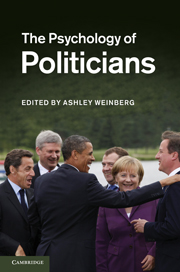2 - Recruiting politicians
Designing competency-based selection for UK parliamentary candidates
Published online by Cambridge University Press: 05 December 2011
Summary
According to George Bernard Shaw, ‘democracy substitutes election by the incompetent many for appointment by the corrupt few’ (1903), yet selection and election decisions both play an important part in determining who will ultimately become a politician. Most politicians represent a political party, and successful democratic elections in the UK and a majority of other Western countries depend on the ability of political parties to attract and select the best possible candidates. In fact, recruiting individuals to legislative office is seen as a core function of political systems, with the quality of candidates selected impacting ultimately on the quality of government delivered (Gallagher and Marsh, 1988; Katz, 2001). As gatekeepers to political roles political parties therefore bear an important responsibility to their members, and the public they hope to represent, to identify the best possible candidates through fair and effective selection procedures (Lovenduski, 2005).
Despite clear parallels between political recruitment and employee selection, there has been surprisingly little exploration of how selection research might inform our understanding of how and why certain individuals become politicians (Silvester and Dykes, 2007). Indeed, industrial and organisational (I/O) psychologists have paid remarkably little attention to politics and political work in general (Bar-Tal, 2002; Silvester, 2008). This chapter sets out to redress this situation by exploring how knowledge and practice relevant to employee selection research might be usefully applied to the political context. More specifically, it considers whether such knowledge and practice might be used to improve how political parties select candidates and identify those individuals likely to perform well in government. Beginning with a review of existing research on political recruitment (conducted mostly by political scientists), the chapter considers potential advantages and disadvantages of applying traditional employee selection methods to political recruitment. Finally, two examples of competency-based selection procedures for approving prospective UK parliamentary candidates are described; one with the Conservative Party and one with the Liberal Democrat Party. Although the chapter takes a predominantly UK perspective, focusing on the role of Member of Parliament (MP), similarities with political recruitment and implications for practice in other countries are discussed.
- Type
- Chapter
- Information
- The Psychology of Politicians , pp. 21 - 38Publisher: Cambridge University PressPrint publication year: 2011
References
- 1
- Cited by

